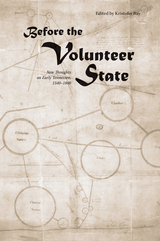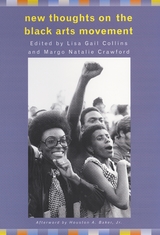2 books about New Thoughts

Before the Volunteer State
New Thoughts on Early Tennessee, 1540–1800
Kristofer Ray
University of Tennessee Press, 2014
Most general studies of Tennessee history begin with the arrival of Anglo-American settlers in the 1760s, with only a brief overview of the state’s “prehistory.” This welcome volume rethinks this narrative by placing Tennessee’s origins firmly in the seventeenth century. In ten thoughtful essays, scholars of trans-Appalachian and early American history address a number of issues that have been touched on only fleetingly within Tennessee historiography, including the dynamic balance of Native American concerns and European imperial interests, the complexity of Revolutionary-era struggles, and the associated challenges of jurisdiction, dominion, and identity formation. Collectively, the volume situates Tennessee more firmly within the context of regional, North American, and Atlantic World developments.
The essays are divided into two parts—the first focusing on the establishment and geopolitical complexities of seventeenth- and early-eighteenth-century life in and around the Tennessee River, and the second exploring the effects of the American Revolution in this geopolitical space. Topics in Part One include Indian life in the late Mississippian era, how contact with Europeans forced a process of migration and change, European understanding of Cherokee strength, and the importance of the Creeks, Cherokees, and Shawnees to early Tennessee history. Part Two offers articles about the confusing milieu into which the region was thrown during the Revolution, the central role of kinship networks for both Indians and whites, and the difficulties of identity formation as Euro-Americans expanded their presence on the Tennessee frontier. The work concludes by addressing the issue of myth and memory and how early Tennessee history was overtaken by nineteenth-century historical narratives that continue to serve as the foundation for understanding the state.
Taken together, these essays provide a gateway through which to reimagine early Tennessee history—a reimagining that demonstrates the significance of the Volunteer State within broader trends in early modern, southern, trans-Appalachian, and Atlantic World history.
The essays are divided into two parts—the first focusing on the establishment and geopolitical complexities of seventeenth- and early-eighteenth-century life in and around the Tennessee River, and the second exploring the effects of the American Revolution in this geopolitical space. Topics in Part One include Indian life in the late Mississippian era, how contact with Europeans forced a process of migration and change, European understanding of Cherokee strength, and the importance of the Creeks, Cherokees, and Shawnees to early Tennessee history. Part Two offers articles about the confusing milieu into which the region was thrown during the Revolution, the central role of kinship networks for both Indians and whites, and the difficulties of identity formation as Euro-Americans expanded their presence on the Tennessee frontier. The work concludes by addressing the issue of myth and memory and how early Tennessee history was overtaken by nineteenth-century historical narratives that continue to serve as the foundation for understanding the state.
Taken together, these essays provide a gateway through which to reimagine early Tennessee history—a reimagining that demonstrates the significance of the Volunteer State within broader trends in early modern, southern, trans-Appalachian, and Atlantic World history.
[more]

New Thoughts on the Black Arts Movement
Edited by Lisa Gail Collins and Margo Natalie Crawford
Rutgers University Press
During the 1960s and 1970s, a cadre of poets, playwrights, visual artists, musicians, and other visionaries came together to create a renaissance in African American literature and art. This charged chapter in the history of African American culture—which came to be known as the Black Arts Movement—has remained largely neglected by subsequent generations of critics. New Thoughts on the Black Arts Movement includes essays that reexamine well-known figures such as Amiri Baraka, Larry Neal, Gwendolyn Brooks, Sonia Sanchez, Betye Saar, Jeff Donaldson, and Haki Madhubuti. In addition, the anthology expands the scope of the movement by offering essays that explore the racial and sexual politics of the era, links with other period cultural movements, the arts in prison, the role of Black colleges and universities, gender politics and the rise of feminism, color fetishism, photography, music, and more. An invigorating look at a movement that has long begged for reexamination, this collection lucidly interprets the complex debates that surround this tumultuous era and demonstrates that the celebration of this movement need not be separated from its critique.
[more]
READERS
Browse our collection.
PUBLISHERS
See BiblioVault's publisher services.
STUDENT SERVICES
Files for college accessibility offices.
UChicago Accessibility Resources
home | accessibility | search | about | contact us
BiblioVault ® 2001 - 2024
The University of Chicago Press









